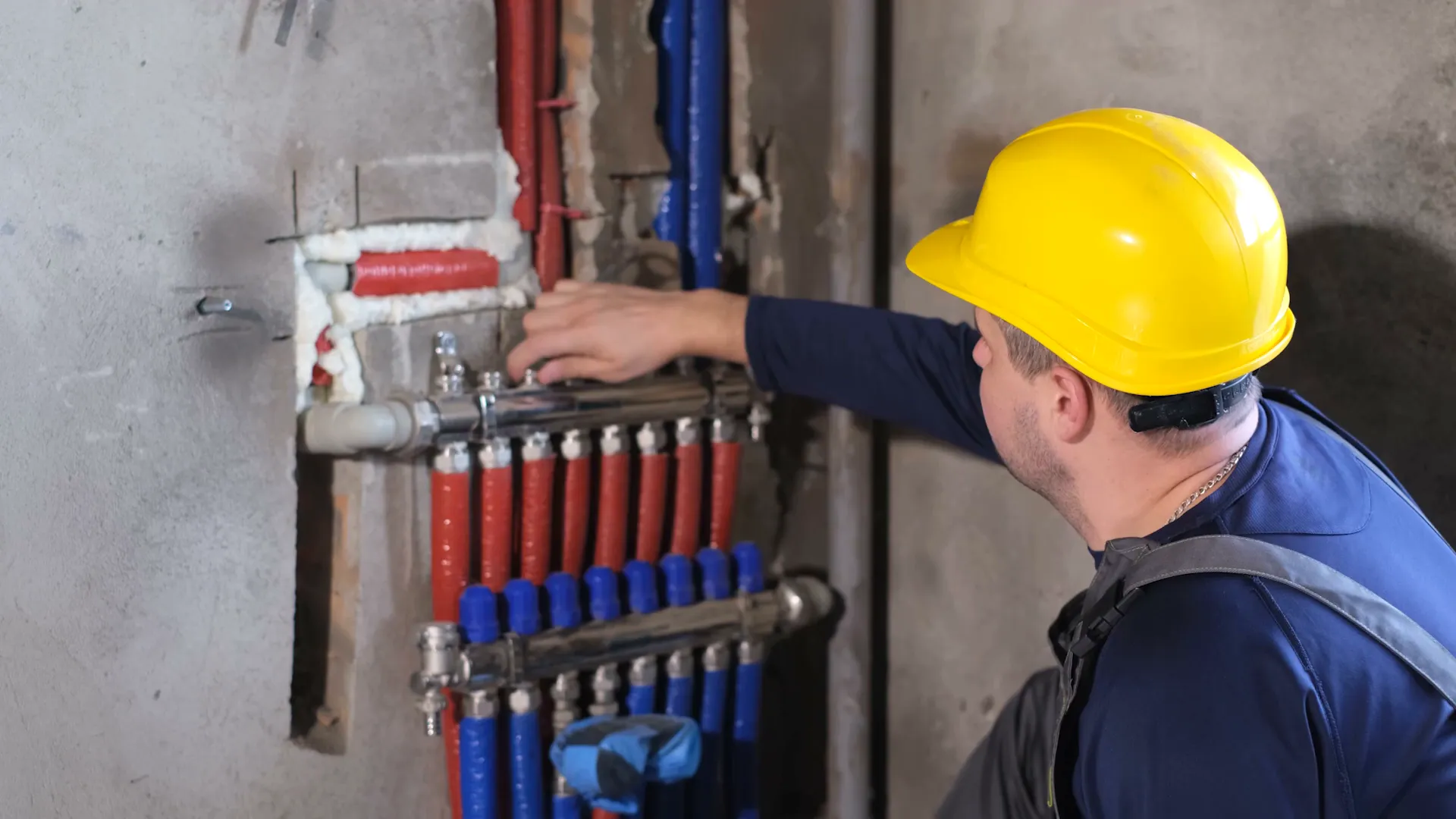Understanding VA Appraisal & Home Inspection
If you are a VA buyer trying to navigate the complexities of VA Appraisal & Home Inspection, this blog will guide you through the essential differences between these two critical assessments, helping you make informed decisions during your home-buying journey.
Table of Contents
- VA Appraisal vs Home Inspection
- Types of Homes: New Construction vs. Resale
- Importance of Third-Party Inspections for New Homes
- Resale Homes & Option Period
- What a Home Inspector Looks For
- Negotiating Repairs on Resale Homes
- VA Appraisal (VA Inspection) Overview
- Vital for Buyers
- FAQ About VA Appraisal and Home Inspection
VA Appraisal vs Home Inspection
The VA Appraisal & Home Inspection are essential components of the home-buying process, particularly for VA buyers. While both assessments aim to ensure the property is safe and sound, they serve different purposes. Understanding these differences can significantly impact your purchasing experience.
A home inspection is a detailed examination of a property's condition, conducted by a qualified inspector. In contrast, a VA appraisal primarily assesses the property's value and ensures it meets specific safety standards set by the VA. Both evaluations play crucial roles, but they are not interchangeable.
Types of Homes: New Construction vs. Resale
When considering a property, it's essential to distinguish between new construction and resale homes. Each type presents unique advantages and challenges, particularly regarding inspections and warranties.
New Construction Homes
New construction homes come with several warranties, including:
- One-Year General Builder Warranty: Covers defects in workmanship and materials.
- Two-Year Major Systems Warranty: Typically includes HVAC, electrical, and plumbing systems.
- Ten-Year Foundation Warranty: Protects against structural issues.
Even with these protections, many buyers opt for third-party inspections to ensure everything is in order before moving in.

Resale Homes
Purchasing a resale home involves navigating an option period, a unique feature of the Texas real estate market. This period allows buyers to conduct inspections and negotiate repairs before finalizing the sale.
During this time, buyers can identify significant issues that may require attention, making it crucial to have a thorough home inspection.
Importance of Third-Party Inspections for New Homes
Even with warranties, it's advisable to consider a third-party inspection for new construction homes. While builders typically adhere to high standards, mistakes can happen. A third-party inspector can catch potential issues before they become costly repairs.
Having an independent assessment allows you to address concerns directly with the builder. This proactive approach can save you time and money, ensuring your new home is in excellent condition before you move in.
Resale Homes & Option Period
In Texas, the option period is a critical window for buyers of resale homes. This period allows buyers to conduct inspections and negotiate repairs. It's your opportunity to identify any issues affecting your decision to proceed with the purchase.
During this time, a thorough home inspection can uncover significant problems, such as plumbing leaks or roof damage. Addressing these issues early can lead to better negotiations with the seller.

What a Home Inspector Looks For
A home inspector evaluates various aspects of a property to ensure it is safe and livable. Key areas of focus include:
- Roof Condition: Inspecting for missing shingles, leaks, and overall integrity.
- Foundation Issues: Checking for cracks, settling, and other structural concerns.
- Electrical Systems: Ensuring wiring is up to code and functioning properly.
- Plumbing: Checking for leaks, water pressure, and drainage issues.
- Appliances: Testing functionality to ensure they are in working order.
By understanding what inspectors look for, buyers can better prepare for their home inspections and address any critical issues before moving forward.

Negotiating Repairs on Resale Homes
Once the home inspection is complete, the next step is negotiating repairs with the seller. This process can be complex but is essential for protecting your investment. Here are some strategies to consider:
- Focus on Major Repairs: Prioritize significant issues affecting safety or incurring high costs.
- Request Documentation: Ensure that repairs are completed by licensed professionals and that receipts are provided.
- Be Reasonable: Understand that sellers may not agree to every request, so be prepared to compromise.
Effective negotiations can lead to a better deal, whether through repairs or concessions on the purchase price.
VA Appraisal (VA Inspection) Overview
The VA Appraisal, also known as a VA inspection, is a crucial step for VA buyers. This assessment is not a traditional home inspection but rather an evaluation focused on ensuring the property meets the VA's minimum property requirements. These standards are in place to protect both the buyer and the lender.
During a VA appraisal, the appraiser will assess the property's overall condition, looking for any issues that could affect its livability and value. This includes evaluating structural integrity, safety features, and overall market value in comparison to similar properties in the area.

Purpose of a VA Appraisal
The primary purpose of a VA appraisal is twofold: to determine the market value of the property and to ensure it meets specific safety and livability standards. This process is essential because the VA guarantees a portion of the loan, and lenders want to ensure they are not lending more than the property's worth.
Additionally, the appraisal aims to identify any safety hazards that could pose risks to the occupants. This includes checking for issues like mold, structural problems, and unsafe electrical systems.
Real-Life Example: Skipping a Third-Party Inspection
Consider a recent case where a VA buyer opted to forgo a third-party inspection, relying solely on the VA appraisal. After moving in, the buyer discovered significant leaks and mold issues that were not identified during the appraisal process. Had they chosen to conduct a third-party inspection, these problems could have been addressed before closing.
This example highlights the risks of skipping a third-party inspection. While the VA appraisal serves its purpose, it does not replace the in-depth analysis that a qualified home inspector provides.
Why VA Inspections and Home Inspections Are Different
VA inspections and home inspections serve distinct purposes. A home inspection is a comprehensive evaluation of the property's condition, focusing on critical systems and potential issues that could affect the homeowner's investment.
In contrast, a VA appraisal is primarily concerned with the property's value and basic safety standards. While the appraiser may note significant issues, their assessment is not as detailed or exhaustive as a home inspector's report.
Vital for Buyers
Understanding the differences between a VA appraisal and a home inspection is vital for VA buyers. While both assessments are important, relying solely on a VA appraisal can leave you vulnerable to unforeseen issues. Investing in a thorough home inspection can provide peace of mind and potentially save you from costly repairs down the line.
If you have any questions about the home-buying process, VA inspections, or third-party inspections, feel free to reach out. My contact information is below, and I'm here to help you navigate your real estate journey.
FAQ About VA Appraisal and Home Inspection
What is the difference between a VA appraisal and a home inspection?
A VA appraisal focuses on determining the property's value and ensuring it meets basic safety standards set by the VA. In contrast, a home inspection provides a detailed evaluation of the property's condition, identifying potential issues that could affect its livability.
Do I need a third-party inspection if I have a VA appraisal?
Yes, it is highly recommended. A third-party inspection offers a more comprehensive assessment of the property's condition and can uncover issues that a VA appraisal may not address.
What happens if the VA appraisal identifies issues?
If the VA appraisal identifies safety or livability issues, the lender may require repairs before the loan can be approved. However, the seller is not obligated to make these repairs unless they are lender-required repairs.
Can I negotiate repairs after the VA appraisal?
Yes, you can negotiate repairs during the option period after the appraisal. However, any issues identified during the appraisal need to be taken seriously, as they can impact the loan approval process.

Aundrea Dudik
With over 150 clients served in Central Texas real estate, Aundrea helps her buyers navigate relocating seamlessly. Known for her expertise, she has a lot of valuable insights on her YouTube channel to make moving to Central texas a hassle-free experience.














